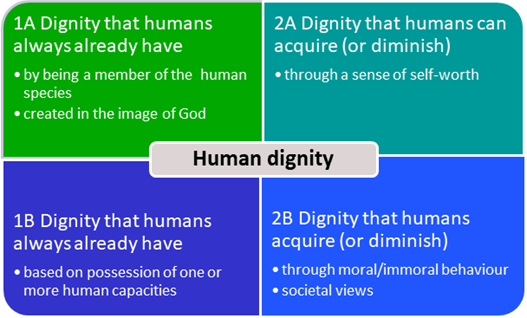Australian Catholic University. (2021). Community engagement. Retrieved from
https://www.acu.edu.au/about-acu/community-engagement/what-is-community-engagement
Baillie, L. (2009). Patient dignity in an acute hospital setting: a case study. International journal of nursing studies, 46(1), 23-37.
Byron, W. J. (1999). Framing the principles of Catholic social thought. Catholic Education: A Journal of Inquiry and Practice, 3(1), 7-14.
Clark, C., & Zalewski, D. A. (2015). Rethinking Finance in Light of Catholic Social Thought. Journal of Catholic Social Thought, 12(1), 19-44.
Cunningham, D. S. (Ed.). (2015). At this time and in this place: Vocation and higher education. Oxford University Press.
Davies, J., MacLaren, D., Needham, L., & Steel, A. (2010). Principles of engagement on international development through the lens of Catholic Social Teaching. Retrieved from
https://www.caritas.org.au/media/lqzfe32y/our-values-catholic-social-teaching.pdf
Duff, J., & Manguerra, H. (2016). Dignity of the Human Person Is Central to UN Sustainable Goals. Health Progress, 97(5), 7-12.
Dunlop, T. (2013). Education is a common good: There should be no losers. The Education Digest, 79(1), 18.
Francis I. (2015). Encyclical Letter, Laudato Si: On Care for our Common, (24 May 2015). Retrieved from
https://www.vatican.va/content/francesco/en/encyclicals/documents/papa-francesco_20150524_enciclica-laudato-si.html#_ftn1
Grace, G. (2013). Catholic social teaching should permeate the Catholic secondary school curriculum: An agenda for reform. International Studies in Catholic Education, 5(1), 99-109.
Grabowski, D. C., Gruber, J., & Angelelli, J. J. (2008). Nursing home quality as a common good. The review of economics and statistics, 90(4), 754-764.
IACE (2010). Matters of the Heart – A Spirituality of Community Engagement.
Kirchhoffer, D. (2013). Human Dignity in Contemporary Ethics. London, Teneo.
MacLaren, D. (2010). Tertiary education for refugees: A case study from the Thai-Burma border. Refuge: Canada's Journal on Refugees, 27(2), 103-110.
Massaro, T. (2000). Living Justice: Catholic Social Teaching in action. Rowman & Littlefield Publishers, Maryland.
Somerville, M. (2009). Defining human dignity. The Montreal Gazette, 22.
Tawil, S, & Locatelli, R. (2015). Towards a global common good? UNESCO Education Research and Foresight. Retrieved from
https://www.norrag.org/rethinking-education-towards-a-global-common-good/
Tohill, A. (2004). Passion for Justice: A Social Justice Teaching Resource. James Goold House Publications, Melbourne.
Wagner, W. J. (2005). Universal Human Rights, the United Nations, and the Telos of Human Dignity. Ave Maria L. Rev., 3, 197.


